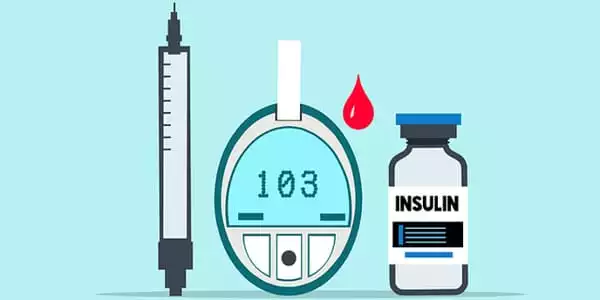A new study found that a risk score based on a map of genetic variations known to affect blood pressure accurately identified persons with Type 2 diabetes who are at elevated risk of having a heart attack or stroke. Genetic risk scores, such as the one evaluated in this study, may assist identify risk very early in the disease process and highlight the need for more extensive prevention efforts, such as healthy lifestyle adjustments in Type 2 diabetes patients.
According to a study published today in the peer-reviewed journal Hypertension by the American Cardiac Association, a risk score based on a gene map predicted the chance of high blood pressure leading to heart issues or stroke in persons with Type 2 diabetes. This tool may be especially useful in guiding treatment for people who are newly diagnosed with Type 2 diabetes or for those with prediabetes.
Previous research has shown that those with Type 2 diabetes are twice as likely as non-diabetics to have a heart attack or stroke. Various health status indicators, such as blood pressure, cholesterol, and blood sugar levels, are widely used to predict a person’s risk of developing heart disease. In this study, researchers investigated whether genetic variations associated with high blood pressure are also associated with subsequent heart disease or stroke in adults with Type 2 diabetes, and utilized this information to calculate a risk score.
We undertook the study to see if this genetic risk score might identify persons with Type 2 diabetes who are at a higher risk for cardiovascular events, and if blood sugar control influences the link between hereditary hypertension risk and cardiovascular outcomes.
Pankaj Arora
“Increased genetic risk of high blood pressure may predispose some people with Type 2 diabetes to a higher risk of heart attack, stroke, or cardiovascular death,” said lead study author Pankaj Arora, M.D., of the University of Alabama at Birmingham’s Cardiogenomics Clinic Program and the Cardiology Clinical and Translational Research Program. “We undertook the study to see if this genetic risk score might identify people with Type 2 diabetes who are at a higher risk for cardiovascular events, and if blood sugar control influences the link between hereditary hypertension risk and cardiovascular outcomes.”
Arora and colleagues examined the medical records of 6,335 people in the Action to Control Cardiovascular Risk in Diabetes (ACCORD) trial database who had genetic data. The study group was made up of 37% women, and participants self-identified their race or ethnicity: 15% were African Americans, 6% were Hispanic, 70% were white, and 9% selected the category “other.” All of the individuals had Type 2 diabetes and high blood pressure, and they were all observed for 3.5 years.
To estimate participants’ genetic risk, a genetic variation map comprising more than 1,000 common genetic variants known to affect blood pressure was compared to their DNA. A higher genetic risk score was associated with more matches between the participant’s DNA and the map of known blood pressure genetic variations.

Researchers found that the genetic risk score identified study participants with a higher risk of cardiovascular events:
- For people with higher than average genetic risk scores, each degree higher was associated with a 12% higher risk of heart disease or stroke events.
- The association of genetic risk with cardiovascular events was the same even if participants were taking medicines to manage blood sugar levels.
To be able to apply these findings more broadly, further evaluation of genetic risk scores in persons who do not have Type 2 diabetes is required.
Arora and colleagues also noted that the findings about differences in people’s genetic risk scores for high blood pressure did not fully explain why intensive glycemic control (aggressive insulin treatment, medications, diet, and exercise) did not appear to have a cardiovascular benefit for people with long-standing Type 2 diabetes.
“However, a genetic risk score maybe helpful for people newly diagnosed with Type 2 diabetes to identify who should have more intense lifestyle changes, such as changes in diet and exercise, and more aggressive management of weight, blood pressure and smoking cessation,” said Arora.
“If you have Type 2 diabetes, there is a lot you can do to reduce your risk for heart disease,” said Eduardo Sanchez, M.D., M.P.H., FAHA, FAAFP, the American Heart Association’s chief medical officer for prevention and clinical lead for Know Diabetes by Heart, a joint initiative of the American Heart Association and the American Diabetes Association addressing the link between diabetes and cardiovascular disease.
“In addition to blood sugar control, which is critical, we strongly encourage patients with Type 2 diabetes to speak with their health care team about additional personal and familial risk factors for heart disease or stroke, and what they can do to manage or modify them.”
















